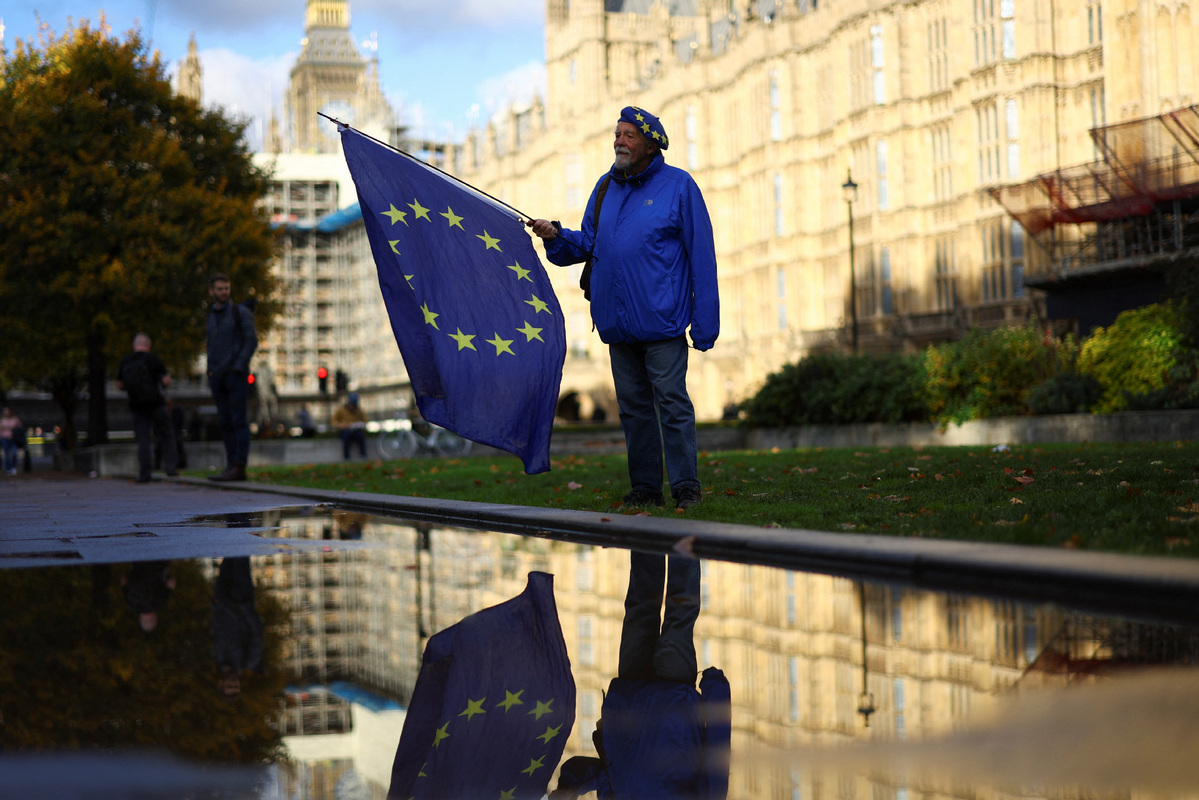EU law purge risks chaos for UK businesses
By JONATHAN POWELL in London | China Daily Global | Updated: 2022-10-24 09:34

Plan to ditch remaining legislation leaves black hole of uncertainty
Conservative plans to remove all remaining European Union laws in the United Kingdom will create chaos for businesses and other organizations, warned the government's former legal chief.
On Tuesday, members of Parliament will debate the retained EU law bill in the House of Commons, but Jonathan Jones, who handled Brexit issues as head of the government legal service from 2014 to 2020, said businesses across the country remain clueless as to what new legislation will apply to them in future.
Business groups, environmentalists, legal experts, workers' unions and opposition parties oppose the bill, which, if passed, would delete 2,400 EU laws that were provisionally kept by the UK after Brexit to ensure continuity.
Jones said the plans to delete most EU laws by the end of 2023 are simply to show that Brexit is being delivered, but risk causing legal and business chaos.
"I think it is absolutely ideological and symbolic rather than about real policy," he told The Observer newspaper.
Organizations in all sectors need to know what regulations they must comply with in advance, but the government has not yet given any clues about incoming legislation, he said.
"As far as I can see there is no indication of which areas the government is thinking of retaining and which it is getting rid of. So there is no certainty about what laws we will have and what will replace them," said Jones.
The push to scrap the EU laws as soon as possible comes from pro-Brexit Conservative rightwingers, is ideologically driven and unnecessary, Jones said.
The Observer reported a list of laws that could be abolished, including rules that guarantee major sporting events such as the Olympics are free to watch on television, compensation for travelers in the event of delays and lost luggage, protection for staff pensions when a company goes bust, and a ban on the trafficking of illegal weapons.
"It is a very, very bad way to change and make law," Jones said. "This has nothing to do with Brexit. We have left. It creates great uncertainty within a very tight and completely self-imposed timescale. There is nothing inherent in Brexit that says we have to change the law within a particular period after we have left. It has been driven by the usual suspects wing of the Tory party."
His comments pile pressure on government ministers, and come after thousands of protesters on Saturday marched through central London calling for the UK to rejoin the EU.
After the UK voted to leave the EU in 2016, years of negotiations took place, both between the EU and the UK, and domestically within the UK itself, before Brexit formally happened in January 2020.
A transition period, during which nothing changed, was in place until Dec 31, 2020, before the Trade and Cooperation Agreement came into force, which handles the post-Brexit relationship between the EU and the UK.
























